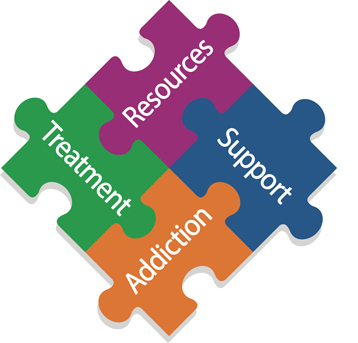Effective mental health treatment services address both behavioral well-being.
Key Kind Of Addiction Therapy: Browsing Alcoholism Recovery Through Evidence-Based Practices
In the realm of alcohol dependency recuperation, the integration of Cognitive-Behavioral Therapies (CBT) and Medication-Assisted Treatment (MAT) marks a critical stride in the direction of efficiency and patient-centered treatment. CBT provides an organized course to reframe harmful thought patterns, while floor covering supplies a biochemical footing versus the physical adversities of withdrawal. When these evidence-based techniques are supplemented with all natural approaches, such as mindfulness and nutritional support, they develop a durable structure for treatment. The journey through these methods provides distinct challenges and end results, laying bare the concern of just how these treatments concretely converge to cultivate sustained recovery.

Comprehending Cognitive-Behavioral Therapies in Alcoholism Recuperation
As alcohol dependency healing develops, cognitive-behavioral therapies (CBT) have actually emerged as a cornerstone in effective treatment approaches. CBT runs on the concept that maladaptive habits, such as extreme drinking, are driven by inefficient ideas and ideas. Therapy focuses on recognizing these negative patterns and training individuals just how to challenge and change them with even more useful thinking. This treatment is not only concerning handling habits but also improving cognitive processes, which can result in sustained sobriety. Sessions commonly include practical abilities training, such as coping approaches for handling cravings and stress and anxiety monitoring strategies. The versatile nature of CBT allows it to be customized to the distinct demands of each person, enhancing its effectiveness in the world of alcohol healing.

The Duty of Medication-Assisted Treatment in Taking Care Of Withdrawal and Yearnings
Medication-assisted therapy (MAT) plays an important role in the monitoring of withdrawal signs and desires in people recouping from alcohol dependency. alcohol addiction treatment. Such integration supports the retention in therapy programs and adds substantially to protecting against relapse, marking MAT read the full info here as a cornerstone of reliable alcohol dependency treatment.

Integrating Alternative Strategies With Conventional Treatments for Comprehensive Treatment
While medication-assisted treatment offers a foundational method to alcohol recovery, integrating holistic approaches with typical treatments uses a much more comprehensive treatment version. This synthesis allows the treatment of the entire individual, attending to not just the physical elements of dependency but additionally the emotional, emotional, and review spiritual dimensions. Techniques such as mindfulness, yoga, and acupuncture enhance cognitive-behavioral therapy (CBT) and group sessions, sustaining stress and anxiety decrease and psychological guideline. Nourishment and workout programs even more improve physical wellness and strength. By integrating these diverse strategies, treatment programs can tailor interventions to private requirements, promoting a much more sustainable recuperation. This integrated strategy emphasizes the value of a multifaceted approach in the reliable therapy of alcoholism.
Conclusion
In conclusion, efficient alcoholism healing leverages a mix of evidence-based practices. Cognitive-Behavioral Treatments reframe negative attitude, while Medication-Assisted Treatment tackles the physical challenges of withdrawal and desires. Integrating all natural techniques, such as mindfulness and proper nutrition, with traditional therapies makes sure a comprehensive treatment approach. Customized to specific needs and supported with time, these approaches jointly improve the likelihood of sustained soberness and general wellness in recovering navigate to this website people. addiction treatment center.